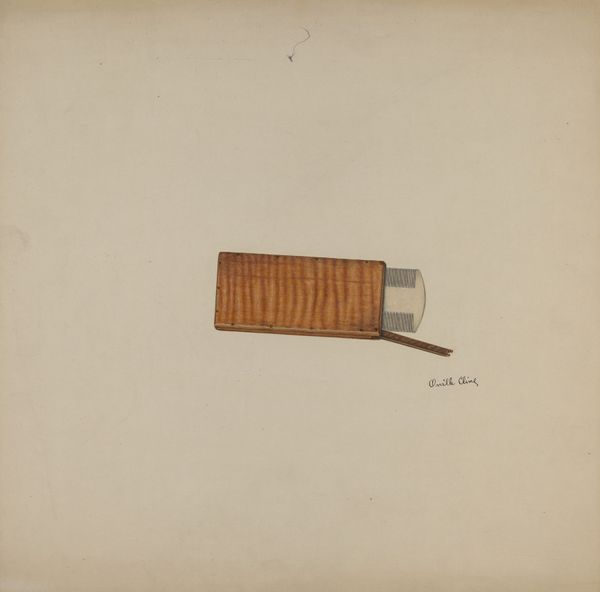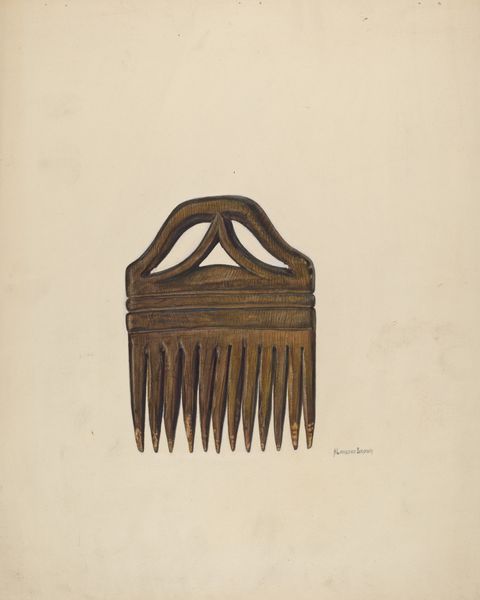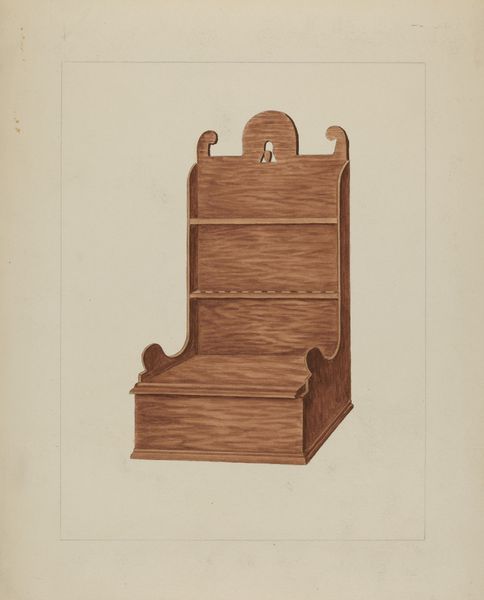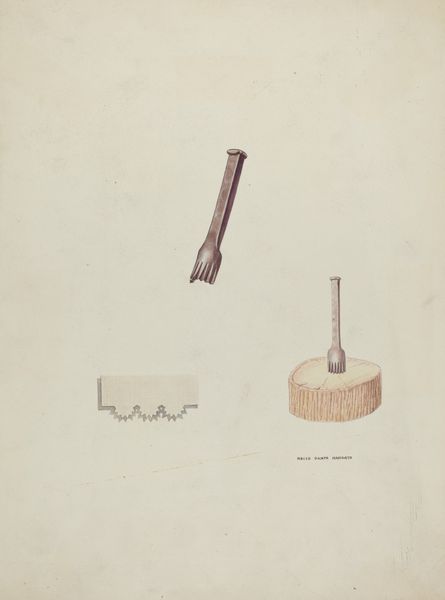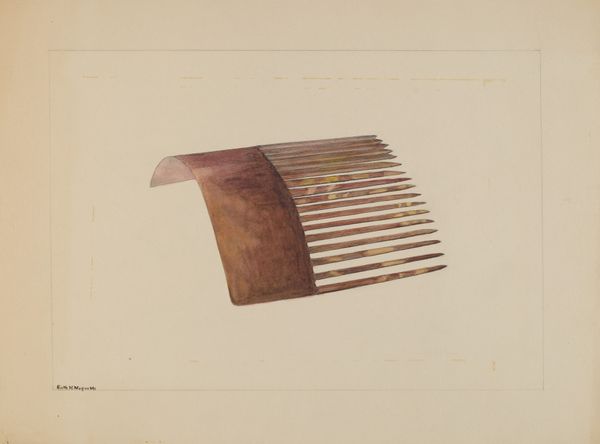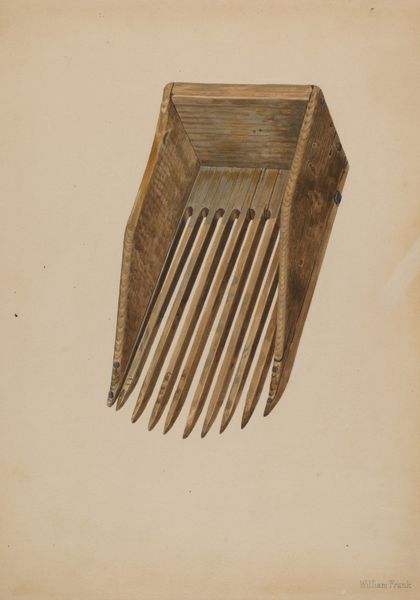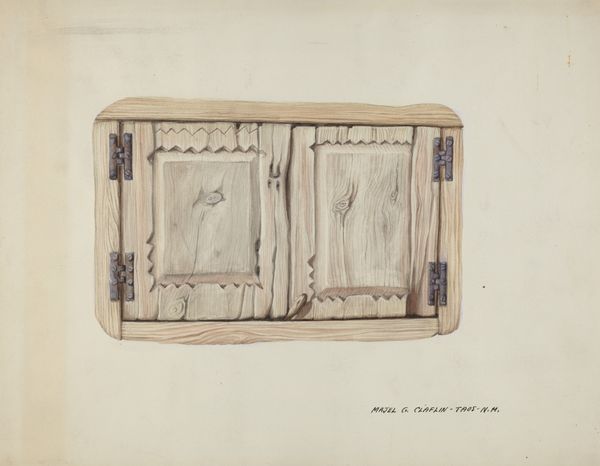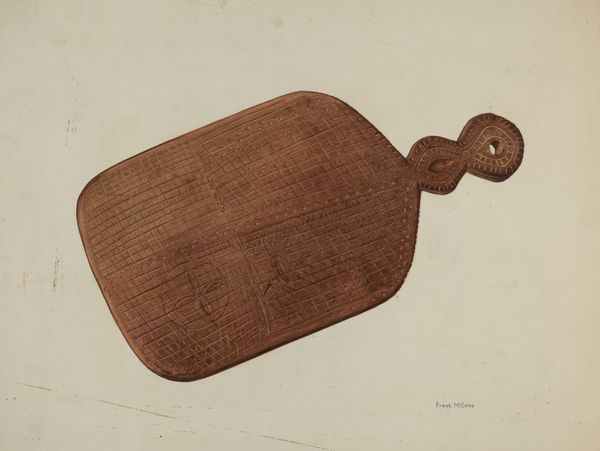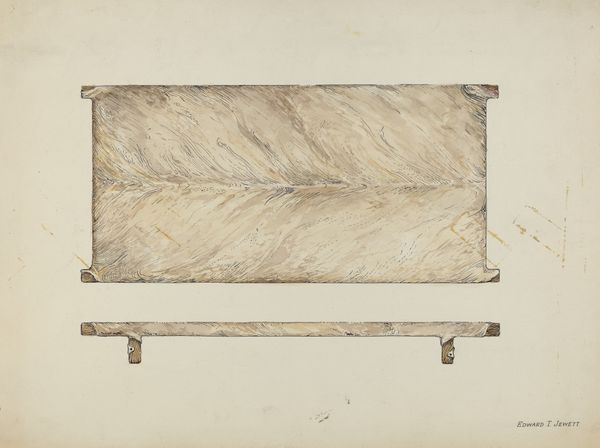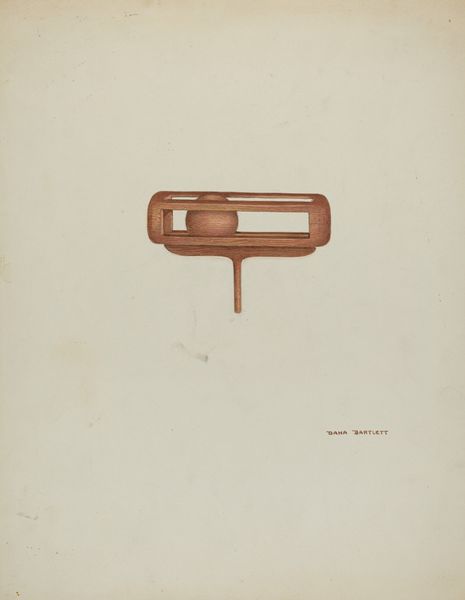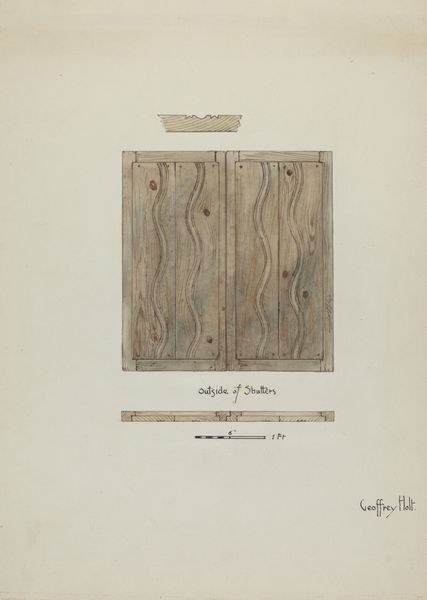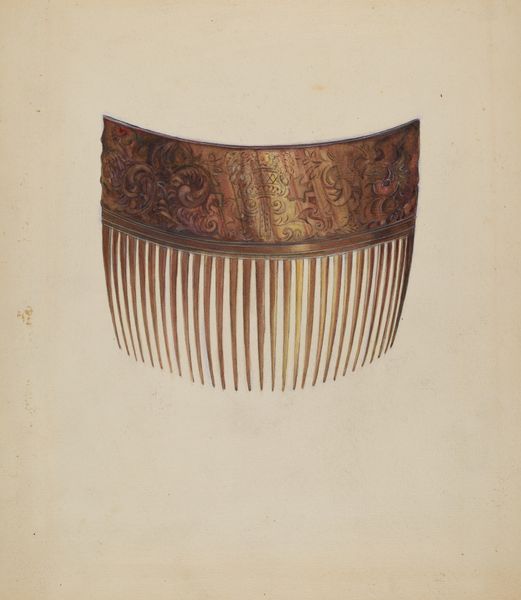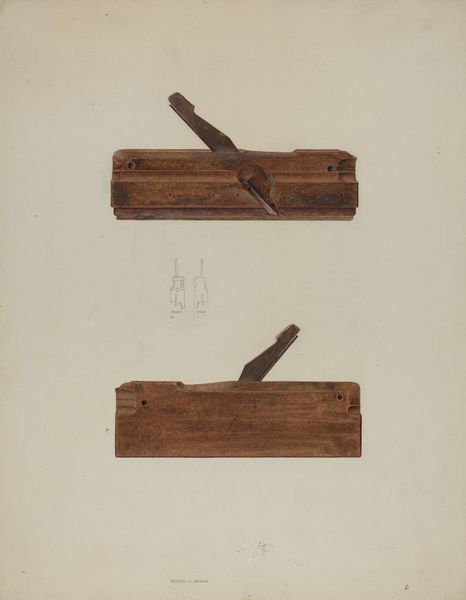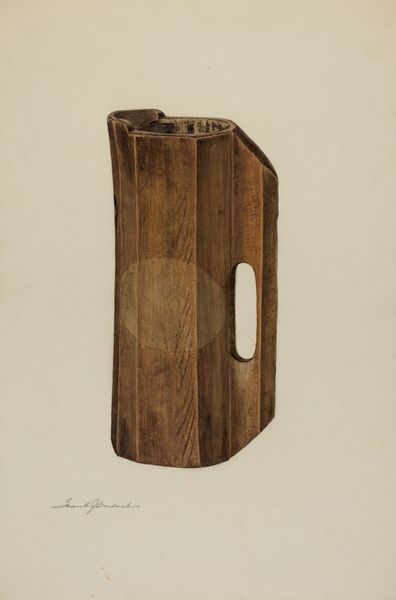
Dimensions: overall: 30.6 x 24.2 cm (12 1/16 x 9 1/2 in.)
Copyright: National Gallery of Art: CC0 1.0
Editor: So, this watercolor by Francis Bruner, "Shaker Seed Comb," was made between 1935 and 1942. It's... very literal, very direct. What do you make of it? Curator: Well, immediately, it makes me think about the Shakers themselves. They were, after all, a utopian religious sect that valued simplicity, utility, and communal living. Doesn't the choice of a mundane object, rendered with such starkness, speak volumes about their worldview and their intentional rejection of capitalist values? Editor: Definitely, the comb as an everyday tool reflects their emphasis on labor and practicality. It feels like more than just a portrait of an object. But how does that connect to today? Curator: It connects through the ongoing discourse about sustainable living and ethical consumption. Consider how the Shakers’ self-sufficiency challenged the burgeoning industrial revolution. We might then reflect on our dependence on mass-produced goods today and ask whose labor makes that possible, and under what conditions? Doesn’t this simple drawing invite us to consider the relationship between labor, value, and our environment? Editor: Absolutely. The minimalist aesthetic feels very contemporary too. The clarity of line and form echoes the modern emphasis on functionality. Curator: And what about gender? Shaker society, unusually for its time, valued equality between men and women. It’s compelling to imagine this artwork as resisting the traditional, often gendered, association of women with decorative arts. Is this humble comb claiming space for the female Shaker voice within a male-dominated sphere? Editor: I hadn't considered that. Now, looking at the simple form, it almost feels radical in its understatement. Curator: Exactly! This seemingly simple watercolor opens up a broader dialogue around sustainability, labor practices, and gender, forcing us to reflect on the items that constitute our daily lives and how we imbue them with meaning. Editor: I agree. I came in thinking "just a comb," and now it's so much more complex. Thank you for helping me appreciate it.
Comments
No comments
Be the first to comment and join the conversation on the ultimate creative platform.
